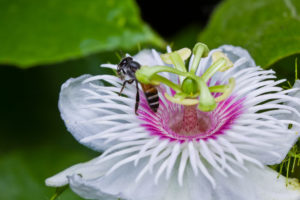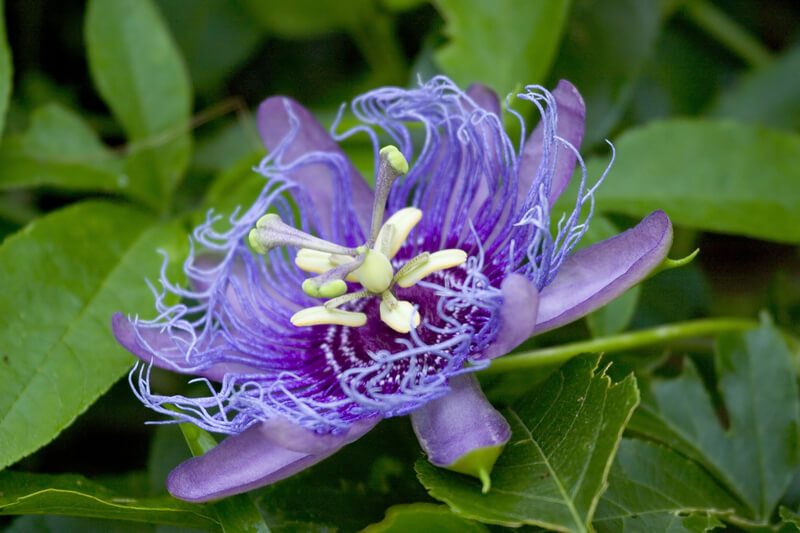Passionflower is a plant with natural sedative compounds. It’s often used as a natural remedy for insomnia, taken as a supplement or tea.
The Passionflower is an absolutely enchanting variety of vine flower, with beautiful, curly purple or blue petals that resemble tentacles. One type of Passionflower, Passiflora incarnata, is said to offer many benefits—like relieving anxiety, insomnia, and pain.
The beautiful Passiflora family, which includes the delightful passionflower (spelled with either one or two words), is found in South America. It also grows in some parts of the southern United States. It includes about 550 flowers and vines.
P. incarnata has been used in traditional medicinal practices since at least the 16th century. Some believe it may help treat anxiety, insomnia, and certain kinds of pain.
How does passionflower work for sleep?

The flowers increase levels of gamma-aminobutyric acid (GABA), a neurotransmitter. It helps regulate mood. It doesn’t make you sleepy like melatonin, rather it helps adapt your mood.
Consuming GABA in this way doesn’t guarantee it will make its way to the brain. The standard, long-held view is GABA cannot cross the blood-brain barrier. However, recent research has cast doubt on this idea. Perhaps it’s because testing methods ranged widely.
Studies on passionflower
Evidence is overwhelmingly in favor of P. incarnata’s ability to help reduce anxiety symptoms. Clinical trials have shown it has anxiety-reducing effects, with results like prescription medication.
A 2016 trial revealed this remarkable flower could even have a positive effect on memory in rats. These effects may be linked to its effect on GABA. Opinions on the degree of its effectiveness vary, a review concluded it had a significant sedative and calming effect. That being said, some suggest that, at minimum, passionflower could be used complementarily with existing treatments.
Another intriguing 2017 study using mice concluded that P. incarnata had a positive effect on sleep patterns. Moreover, another study in rats also found that passionflower increased slow-wave (deep, delta-wave) sleep, reduce rapid eye movement sleep, and help rats sleep.
Yet another animal study showed passionflower both reduced the time to fall asleep and increased its duration. To determine if these results readily apply to humans, further research is needed to determine the effectiveness and identify any side effects.
Another study revealed that after taking P. incarnata for three to six weeks, participants experienced a remarkable alleviation of menopause symptoms, such as headache, depression, insomnia, and anger, when compared to a control group.
One thing to keep in mind considering the results of the studies, however, is that the scientists studying passionflower probably didn’t prepare their tea the same way you did. They steeped it for 15 minutes, letting it completely cool. Then they compressed the teabag, getting out every last bit of the extract.
For further reading:
Chamomile tea for sleep: the benefits of drinking at bedtime
How to make the most of your healing dream
The alarm clock is your best life’s enemy
How to get scary things out of your head
Some links on the Dream Recovery System are affiliate links. If you click on one of those links and make a purchase, we may receive a commission. This arrangement has no effect on our opinions.
